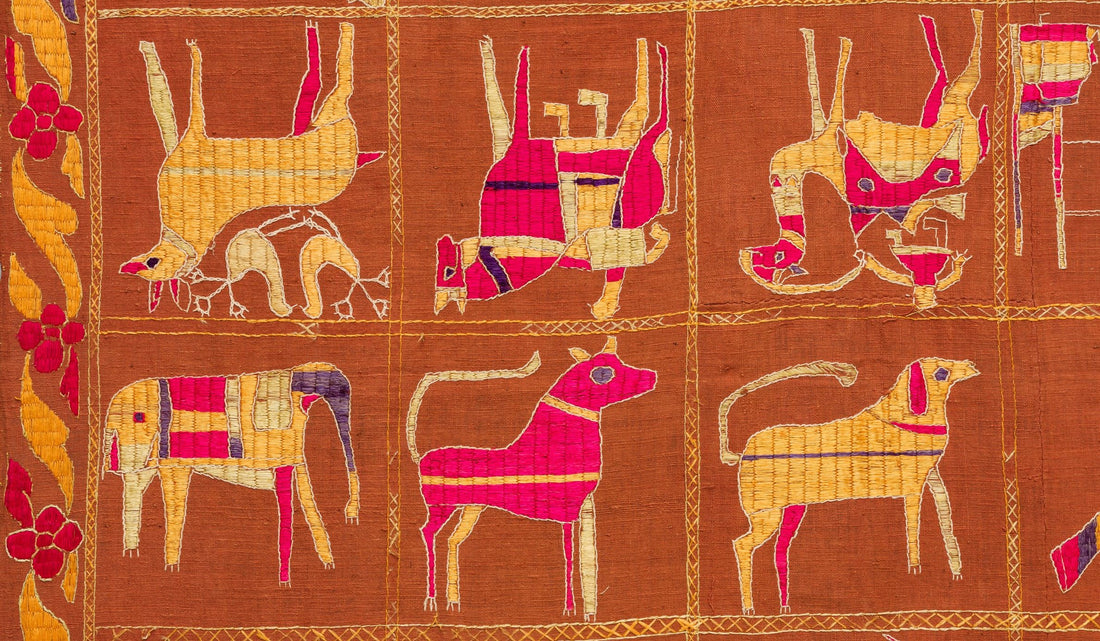
Unbound Visionary Women

Image credit: Unknown maker, Phulkari early 20th-century, Cotton with floss silk embroidery. © Bradford Museums and Galleries. Photograph by Paul Tucker.
Until April, Two Temple Place is hosting an exhibition - Unbound: Visionary Women Collecting Textiles – telling the story of seven pioneering women who went against all established norms to create some of the richest, most diverse and international public collections of textiles in the UK today.
Unbound: Visionary Women Collecting Textiles celebrates women who saw beyond the purely functional, to reveal the extraordinary artistic, social and cultural importance of textiles. From the anthropological collections of traditional Balkan costume by Edith Durham, to the contemporary South Asian collection of Nima Poovaya-Smith, these women defied the ‘traditional’ concept of collecting – an activity still more often associated with men – and forged the way for textiles as crucial documents of social history as well as works of art in their own right.

Image credit: Jelek 1913, Gold embroidery on black cloth. © Calderdale Museums Collection, Halifax. Photography by Paul Tucker.
This major collaborative project explores the innovative approaches of Edith Durham (1863 -1944), Louisa Pesel (1870 - 1947) – incidentally a character in Tracy Chevalier’s novel A Single Thread, who she will discuss at the next Selvedge Talk – Olive Matthews (1887 -1979), Enid Marx (1902 - 1998), Muriel Rose (1897 - 1986), Jennifer Harris (working 1982 - 2016 at the Whitworth, University of Manchester) and Nima Poovaya-Smith (Senior Keeper International Arts 1985-1998,Cartwright Hall Art Gallery, Bradford), and presents the objects from a previously unexplored perspective, that of the female collector.

Image credit: Brocade Shoe without Clog 1735-45, Brocaded silk. © The Olive Matthews Collection, Chertsey Museum. Photograph by John Chase Photography.
The exhibition includes sculptural 18th-century costume, intricately embroidered Balkan towels, headdresses and waistcoats, the 1920s and 1930s block printed fabrics of Barron and Larcher, as well as contemporary works: Alice Kettle’s huge machine embroidered panels Three Caryatids (1989-91), Yinka Shonibare’s 2007 copy of the last slave ship The Wanderer reimagined with ‘African’ batik fabric sails and Sarbjit Natt’s 1996 geometric patterned silk sari. These sit alongside archival photographs, sketchbooks and letters, many of which have never been shown in public. The exhibition looks at how these collections continue to influence us today and asks why textiles still have to fight for their place amongst the more established visual arts.
For more information visit www.twotempleplace.org

